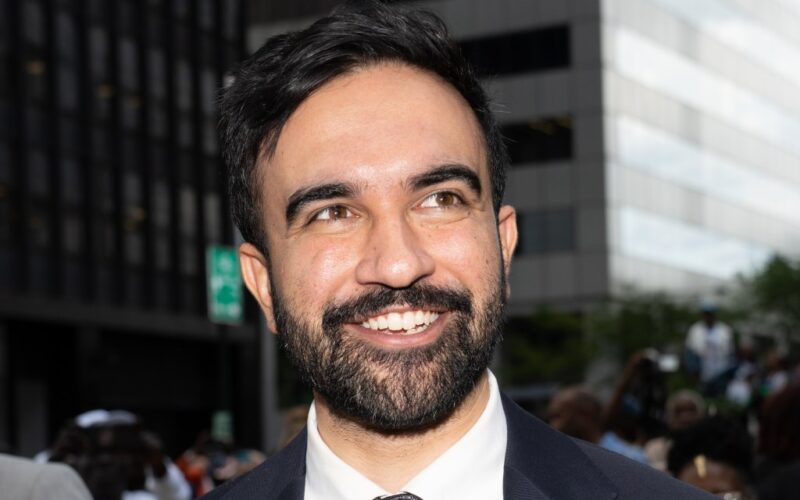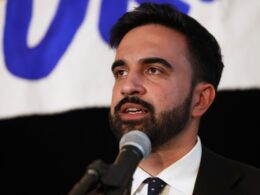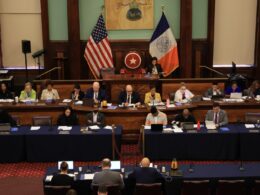Twice over the past summer, storms caused major flooding struck the New York City subway system, closing 20 stations on July 15. The inundation, per the New York Times, exemplified the system’s “longstanding infrastructure problem that is only getting worse.”
Such recent events might logically figure in the current mayoral campaign, along with maintenance of parks and recreation facilities and the fact that civil engineers have rated the majority of the city’s bridges in fair or poor condition — and five are actually closed.
These and other “infrastructure” issues are about much more than engineering — they are central to the quality of life of a well-functioning city. When commuters are stranded on the F train and must walk to safety through a dark subway tunnel, that should not be accepted as a normal day in the Big Apple. Nor should it be acceptable for neighborhood swimming pools, like that in Red Hook, Brooklyn, to be closed for repairs in the heat of the summer or for aging sewer lines to back up in the residences in Gowanus and East Elmhurst — with repairs estimated at years away, at best.
The mayoral campaign should include discussion about how to ensure that such problems — affecting the daily lives of New Yorkers — are addressed.
Yet the leading mayoral candidate has built his campaign around what can only be called redistribution, not rebuilding. Zohran Mamdani emphasizes more free stuff — free child care, free bus service, cheap groceries. One might argue that what is blandly termed infrastructure investment can proceed even as progressive programs are added. But the city’s budget, though massive ($111.6 billion) is not unlimited. Budgeting involves choices — and adding new programs inevitably de-emphasizes other needs.
Such tradeoffs are clear in the latest capital budget passed by the City Council. Although that overall budget has increased by 2.3 billion, to $24.28 billion, a close look shows that even a budget that is meant to focus on rebuilding — sewers, bridges, beach bath houses — also devotes millions to redistribution.
Notably, it includes more than $3 billion in city dollars for still more subsidized “affordable housing” in the city that already has more of such units than any other in the country. This is not an investment in infrastructure that merits bond financing in a capital budget. Instead, it subsidizes individual apartments for a fortunate few who score the units in housing lotteries.
Those are funds that will not go toward the century-old sewer system that regularly overflows and springs leaks, even cutting off neighborhood water supply in Inwood recently. Or for the Department of Transportation, to repair roads and bridges. Or to rebuild libraries, police stations or the woefully underfunded capital budget of the Metropolitan Transportation Authority, which according to the Independent Budget Office has identified sources for only half of its $68 billion capital plan.
The bus fares Mamdani would forego are a crucial revenue source for the MTA. It’s important to know fully 23% of the MTA budget comes from the fare box. Free bus service will not help its bottom line, nor will the looming end of federal COVID era aid that covered an additional 15%. Mr. Mamdani seems not to realize that free bus service leads inevitably to fewer new buses, subway cars and crucial signal apparatus replacement.
One might think that Mamdani’s remaining major opponent, Andrew Cuomo, would cast himself as the rebuilding candidate. After all, he can rightly claim credit for the stunningly successful renovation of LaGuardia Airport, which he initiated and oversaw as governor. Instead, Cuomo seeks to compete with Mamdani on redistribution — proposing a new state law to reserve the city’s nearly 1 million rent-stabilized apartments for low-income tenants. That’s a recipe for bankrupting building owners — and setting the stage for the city ownership Mamdani prefers.
If there is even a ray of hope for a focus on rebuilding, it may lie in Mamdani’s comment, at a Sept. 6 town hall meeting in Brooklyn, that he has a positive view of the “sewer socialism” of 20th century Milwaukee Socialist mayors such as Emil Seidel, who established the city’s first public works department. Mamdani acknowledged the importance of addressing the “inefficiencies, the failures of the public sector”, adding, “we need to deliver excellence.”
Diverting limited tax dollars for still more redistribution, however, will not clean the streets, fix the bridges or repair the subways. New York needs less redistribution and more rebuilding.
Husock is a senior fellow at the American Enterprise Institute.








